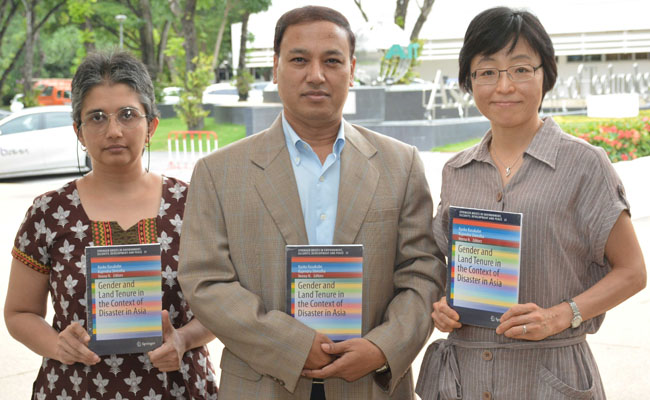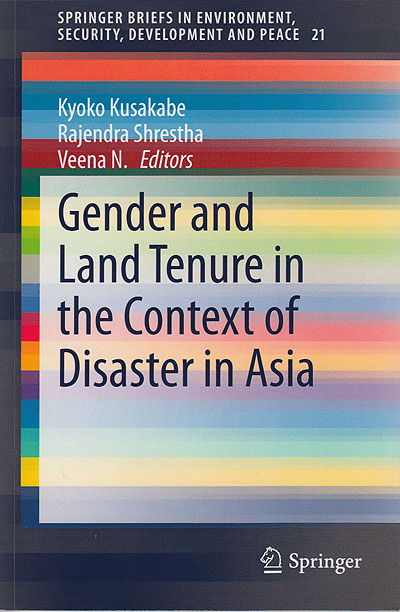Published by Springer in 2015 as Volume 21 of its
series ‘Springer Briefs in Environment, Security, Development and
Peace’, the seven chapter publication is a unique exploration of an
interdisciplinary field at the intersection of gender and development
studies, disaster and land tenure policy.
Research presented in the 112-page publication
focuses on five Asian countries: India, Indonesia, Malaysia, Sri Lanka
and Philippines, and the case studies from the field stress the
importance of land tenure systems during a disaster.
Spawned from the FAO supported ‘Expert Consultation
on Land Tenure and Disaster and its Social and Gender Impact’ organized
at the Asian Institute of Technology in November 2013, the book
features the work of twelve contributing authors and introduces new
areas of research and policy for scholars of the subject.
In the introduction chapter titled ‘Gender and Land
Tenure in the Context of Disaster, authors Veena N. and Assoc. Prof.
Kusakabe set the tone by examining land and disaster, gender and land
tenure in Asia, gender, land and disaster, and case studies from
marginalized communities in Asia. The gender experts offer scholarly
hopes and strategies for empowerment, in their conclusion.
It is well known that women generally have weaker
claims to land. So the editors ask: “How does that translate to
increased vulnerability during disaster?” Using case studies from Asia,
the book argues that land tenure is a key factor in mitigating the
impact of disasters on women.
The editors state that “as the scale and frequency
of disasters have been increasing in recent decades due to human impact
on the landscape and climate, and unsustainable farming and land
management systems have increased environmental risks and social
vulnerabilities – around the world the costs of disasters are
disproportionately borne by women.
“Women are more vulnerable to disaster, due to their
reduced mobility and lack of control over assets. In post-disaster
settings, women’s vulnerabilities increase due to gendered rescue and
rehabilitation practices.”
“A gendered approach to land rights is critical to
disaster preparedness and rehabilitation,” they conclude.
The AIT editors thanked Prof. Sivanappan Kumar, AIT
Vice President for Academic Affairs for his encouragement and support.
They also extended appreciation to series editor Dr. Hans Günter Brauch
and the many reviewers, including Dr. Mokbul Morshed Ahmad of
AIT.


